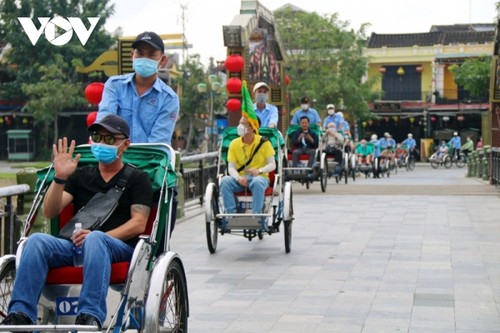 Foreign visitors do not need to undergo medical isolation upon entry but they must test negative before departure. Foreign visitors do not need to undergo medical isolation upon entry but they must test negative before departure. |
Foreigners entering by air must produce a negative test result for the SARS-CoV-2 virus 72 hours before departure if the RT-PCR/RT-LAMP method is used, or within 24 hours if the rapid antigen test method is used. The results must then be certified by the competent authorities of the country performing the test. A similar policy also applies to people entering by land and waterways.
In the event that a visitor has no a negative test result, a rapid test must be performed within the first 24 hours from their time of entry. If the test proves to be negative, then the visitor will be permitted to leave their accommodation. If the test comes back positive, they must immediately report to local health authorities for further instructions on timely handling.
Children under the age of two are allowed to enter without any test and can participate in outdoor activities with their parents and relatives.
Visitors must make medical declarations at the border and they must also use the medical declaration application (PC-COVID) during their stay in the country.
Vietnam officially reopened its borders to international tourism on March 15. However, travel firms were worried that it would be difficult for the country to attract foreign visitors unless COVID-19 regulations, including those on medical isolation and testing, were reviewed and revised.
Travel firms argued that it is unfair if vaccinated foreign visitors are required to undergo medical isolation at their place of accommodation for a certain period of time, particularly while vaccinated domestic travelers are allowed to travel freely without any obstacles.
During a meeting held with foreign ambassadors and various representatives of travel businesses in Hanoi on Tuesday, Deputy Prime Minister Vu Duc Dam affirmed that foreign visitors would be treated the same as domestic visitors upon arrival. He also requested that relevant ministries and agencies continue to receive opinions from domestic firms and localities regarding the reopening policy, including expanding visa-free markets, removing restrictions on electronic visas, and extending visitors’ stay.